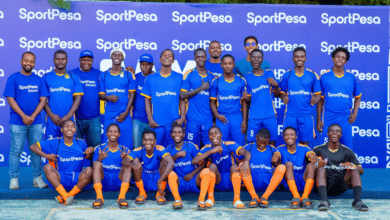Exclusive: The Advertising Gamble – When Consumer Protection Meets Commercial Reality

The Nigerian sports betting industry is dealing with numerous challenges from court battles for regulatory authority, to policies that limit what may have been perceived by some operators as the freedom to advertise on social media platforms. Regarding the latter, the Advertising Regulatory Council of Nigeria (ARCON) says- ‘not so fast’. According to section 54 of the ARCON Act No. 23 of 2022, all adverts regardless of the medium, must be vetted and approved by the ARCON Standards Panel (ASP) before publication.
Failure to adhere to the aforementioned provisions could result in fines, imprisonment, seizure of materials and public sanctions. iGaming AFRIKA conducted exclusive interviews with several professionals in the advertising and gaming industries in Nigeria. The responses highlight a growing need to review and improve the current management of the sector. For the newly appointed Executive Secretary of the Association of Nigerian Bookmakers (ANB)– Gift Tamunopreye, this is too large a burden for sports betting operators in Nigeria to bear and she thinks that the enforcement of these regulations may unintentionally benefit unlicensed operators :
“The regulation could significantly reduce the ability of licensed operators to reach their audiences. The advert fees are on the high side and will have a direct or indirect effect on thousands of jobs- particularly in customer service, marketing and IT. This is because when operators are unable to advertise, it translates to less customer engagement which may result in downsizing in most betting companies. It also gives unfair advantage to unlicensed operators who operate via offshore platforms,as they can still advertise illegally without the same restrictions. This creates an unlevel playing field and diverts revenue from regulated Nigerian businesses.” States Gift.
For the Director General of ARCON Dr. Olalekan Fadolapo, the Nigerian iGaming industry is ‘a specialized high risk area.’ It’s for this reason that he
asserts: ‘we have a statutory role to play, we won’t fold our arms and allow things to happen before we intervene.’
On the subject of the iGaming industry being granted special treatment regarding ARCON’s policy due to the exceptional nature of the industry’s operations, Fadolapo states that the exceptional nature makes it essential for more eyes to monitor iGaming activities :
“Unlike a brand advert where you send a copy and we take a look at it, with sports betting, we often need to do a backend check. How many of these gaming companies are actually licensed by all the relevant government agencies? How many are truly in alignment with the rules and regulations? We may not be able to treat them the way we handle other sectors that send their adverts to us, but all adverts and communication must be in alignment with global and local standards.”
The pursuit of clarity and no attempt to stifle creativity
Advertising often involves a call to action whereby the target audience is urged to take certain steps in order to get specific outcomes. When it comes to the iGaming industry, Fadolapo explains that ‘issues of claim’ often come up which border on the use of specific words that could be vague and subject to interpretation. He recalls a promotion advertising instance where a specific iGaming company which was looking to give away 5 vehicles to its customers framed the language of the advert to say it had ‘lots of cars to give away’- which could be misleading:
“If we don’t keep an eye on the communication and the way adverts are done in the iGaming industry in respect to the copy, duration, and emotions being pulled, we may be putting the entire economy in jeopardy. It’s the promises in such adverts that drive participation.”
Read Also: Sizekhaya Holdings Denies Allegations of Impropriety in National Lottery Licence Award
Fadolapo clears the air about any perception which suggests that ARCON’s actions seek to stifle the creativity of legitimate business innovation. Instead, he explains that the goal of ARCON is to encourage creativity which factors in the context and peculiar nature of Nigeria:
“ASP is an arm of ARCON. The primary duty of the ASP is to review adverts. This panel which consists of numerous bodies including NAFDAC, SON, etc. sits down to look at adverts and determine the suitability for exposure to Nigerians. If an advert is disapproved, an appeal could be made to the ASP. which then goes to the DG. The position of the ASP is not cast in stone. We look at many factors including flexibility, global alignment and best business practices in our local context.”
A seat at the decision making table
Speaking of the ASP, Tamunopreye states that one of the requests which the ANB has submitted to ARCON is to have a representative of the ANB added to the ASP “which the DG of ARCON has graciously approved.” Other requests which the ANB made to serve as alternative regulatory framework for the iGaming industry are:
- A proposal for a Sector Specific Advertising Regulation for the industry;
- A recommendation for fee reduction;
- Request for an exemption from paying fees for non- promotional advertising.
Tamunopreye confirmed that ARCON has heard the ANB regarding item 2, but requested a justification on why the fees should be reduced, which the ANB intends to provide. She also makes it clear that the most problematic aspect of the ARCON policy is the impact which it could have on iGaming operators’ revenue:
“operators engage with their customers via advertising more often than not. It’s unfair to us, because it constitutes a huge financial burden. There will be huge revenue loss for the operators.”
The ANB is grateful for the the progress which it has made with ARCON on this subject, but when asked what the contingency plan would be if these regulations remain unchanged, Tamunopreye explained:
“We are big on compliance and direct engagement. We will continue to engage in collaborative dialogue with the regulators. ANB’s goal is to protect the sustainability of the iGaming industry while upholding best practices and we will continue to do so.”
A Firm but flexible regulator
Thankfully, for ANB and iGaming operators, ARCON is clear that in spite of its unwavering commitment to consumer protection, it is flexible as long as the desired outcome is achieved. According to Fadoloapo:
“We are not ‘a know it all’ body. We have never given the impression that our principles and policies are cast in stone. The gaming operators are capitalists and they want to make more money for their shareholders and businesses. The public are the vulnerable so we need to regulate. If for example the policy seeks to achieve a sum total of 10 and ARCON seeks to achieve this from an ‘8+2’ approach, and the iGaming operators suggest a 6+4 approach , we are open as long as we achieve 10. The most important thing is that we don’t lose the objective of that regulation, the consumer is not taken for granted and the Nigerian economy is better for it.”
Conclusion
The ongoing dialogue between ARCON and the ANB illustrates the complex balancing act required when regulating emerging industries in Nigeria’s digital economy. Dr. Fadolapo’s commitment to consumer protection and his recognition of the iGaming sector as a “specialized high-risk area” reflects genuine regulatory concerns about misleading advertisements and unlicensed operators. Simultaneously, Tamunopreye’s concerns about financial burdens, job losses, and competitivedisadvantages highlight the real-world economic implications of stringent advertising requirements.
Both parties demonstrate a willingness to find middle ground—ARCON’s flexibility in considering alternative approaches and the ANB’s dedication to compliance and collaborative engagement suggest that compromise is possible. However, their differing perspectives raise a critical question for Nigeria’s regulatory future: Can traditional regulatory frameworks effectively govern rapidly evolving digital industries without stifling legitimate business growth or inadvertently creating advantages for unregulated competitors? The resolution of this tension will likely serve as a blueprint for how Nigeria approaches regulation in other emerging sectors of its digital economy.
Copyright 2025 Media-Tech iGaming Technology Limited. Permission to use quotations from this article is granted subject to appropriate credit being given to www.igamingafrika.com as the source.
Author: Cynthia Areh


















